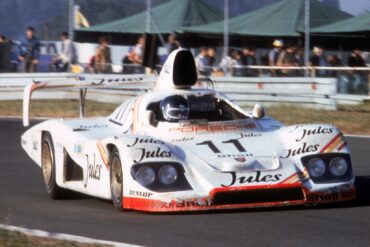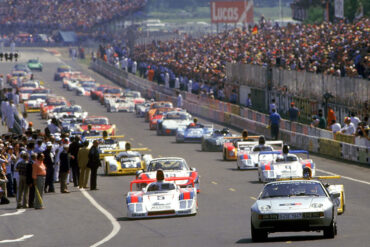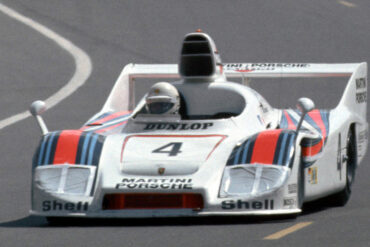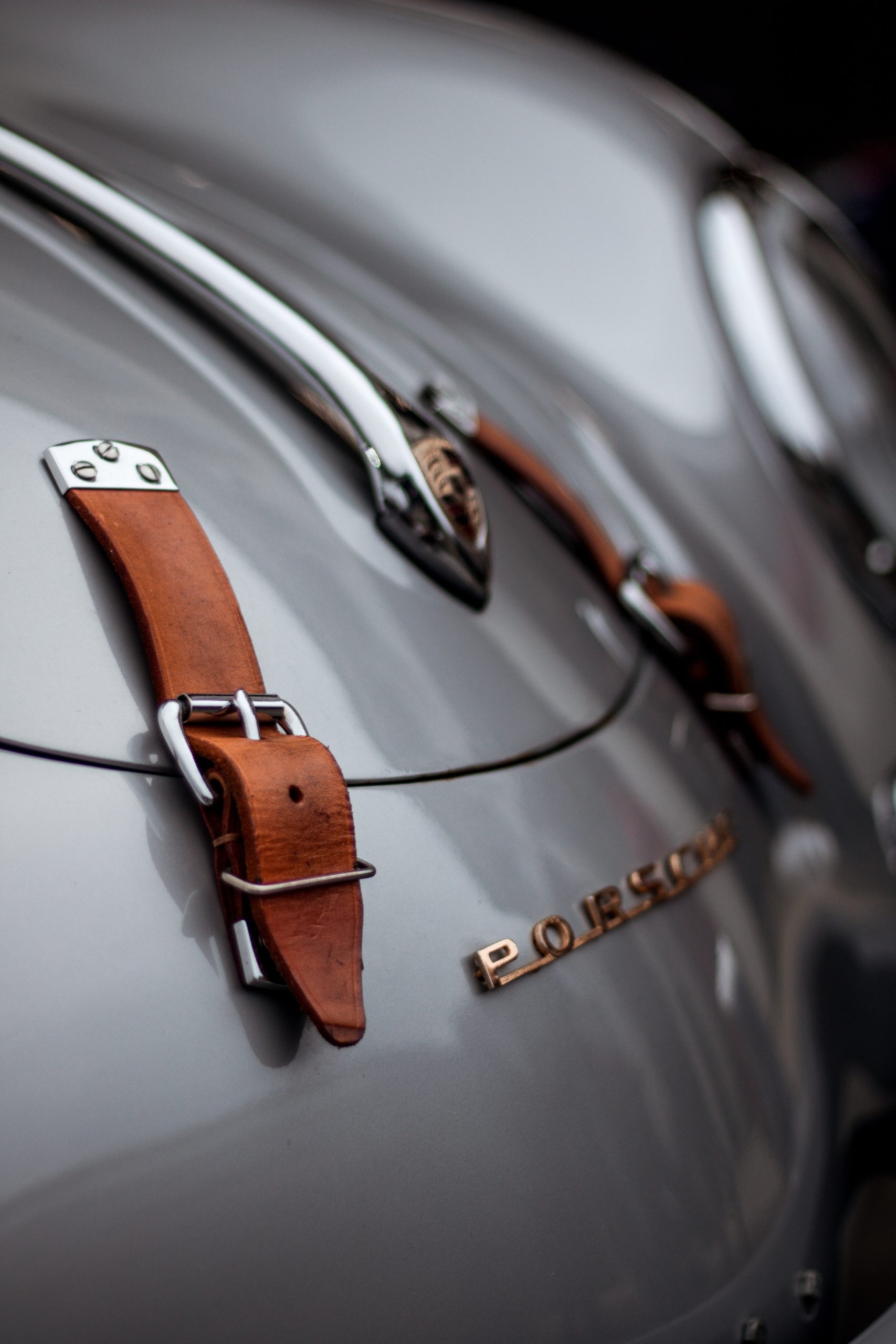Because the traditional pre-test is cancelled in 1981, Porsche is forced to start at Le Mans without testing. None the less, the race ends successfully: Jacky Ickx and Derek Bell win almost an hour ahead of the second placed competitor – right in time for the 50th anniversary of Dr. Ing. h.c. F. Porsche AG, and 30 years after Porsche’s first start at Le Mans.
For the 1978 Le Mans, Porsche created two new 936/78. The first one was built using chassis 936-001, which had already served for the 936/76 and 936/77. The second car was built on a new chassis and numbered 936-003. Because of the new water-cooled 24-valve engine, the 936/78 came with huge NACA ducts on the sides for the radiators and a new rear end with hanging spoiler.
In 1977, Porsche returned to Le Mans with the 936/77. Its body was smaller, lower, shorter and further refined aerodynamically. The engine now featured two turbochargers and delivered 20 more horsepower. At one of the most dramatic races in history, Jacky Ickx, Jürgen Barth and Hurley Haywood slayed the armada of four Renault works cars and two factory-supported “Mirage” with Renault motors. In the year 1981, the 936 celebrated a sensational comeback with another overall Le Mans victory.
The Group 6 Porsche 936 was the successor to the 908/03 and the turbocharged 917. While the 917 had a 5.4-litre flat-12 biturbo engine, the 936 got a 2.1-litre flat-6 single turbo engine. The reason for the 2.1-litre displacement was to fit inside the 3-litre class (turbocharged cars had a coefficient of 1.4). Despite the small capacity, the engine developed more than five hundred horsepower. Imagine such power in a ~700 kg/1540 lb car!






